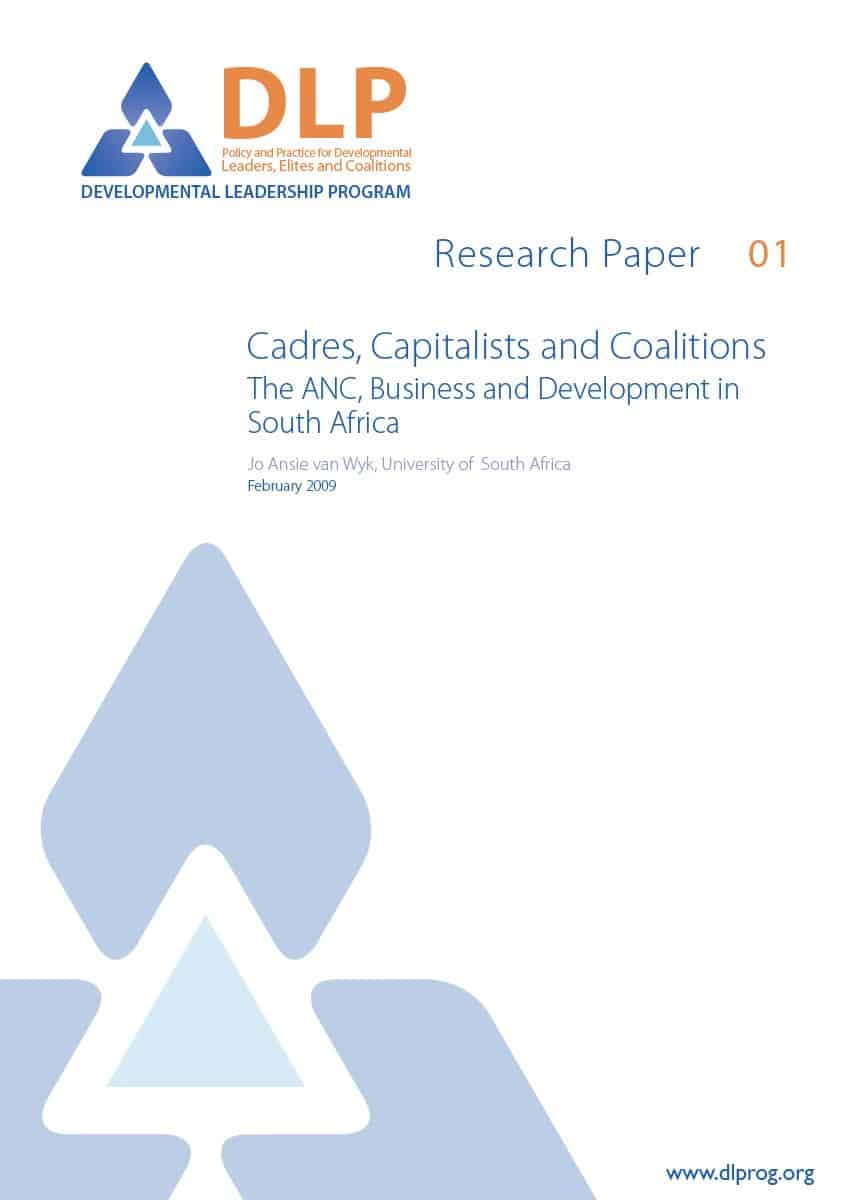The transition from apartheid to democracy in South Africa is widely regarded as an exemplary case study of an elite political settlement.
South Africa’s political history in the last two decades can be written, and certainly understood, in terms of the way old, new, political and economic elites interacted in different domains and sectors to resolve major collective action problems and produce institutional solutions that would work, even if contentious. Less attention has been paid to the economic pact made by these elites, and this paper seeks to address this gap.
Key points:
As a liberation movement, the African National Congress (ANC) advocated nationalisation to undo socio-economic legacies of apartheid. Once the political transition was underway nationalisation was discarded. Instead ANC elites opted for pro-business/market policies, which stabilised the economy and attracted much needed foreign direct investment.
Once the political or democratic pact was in place, the negotiation and consolidation of the economic pact was achieved with the formation of numerous formal and informal coalitions with, first, white and then, later, black capital to undo the economic legacies of apartheid.
Not only did this result in a stable political transition, but also in political and economic transformation. More importantly, early signs of a developmental pact are evident. This may result in a successful developmental state that delivers equality and equity to all in post apartheid South Africa.









